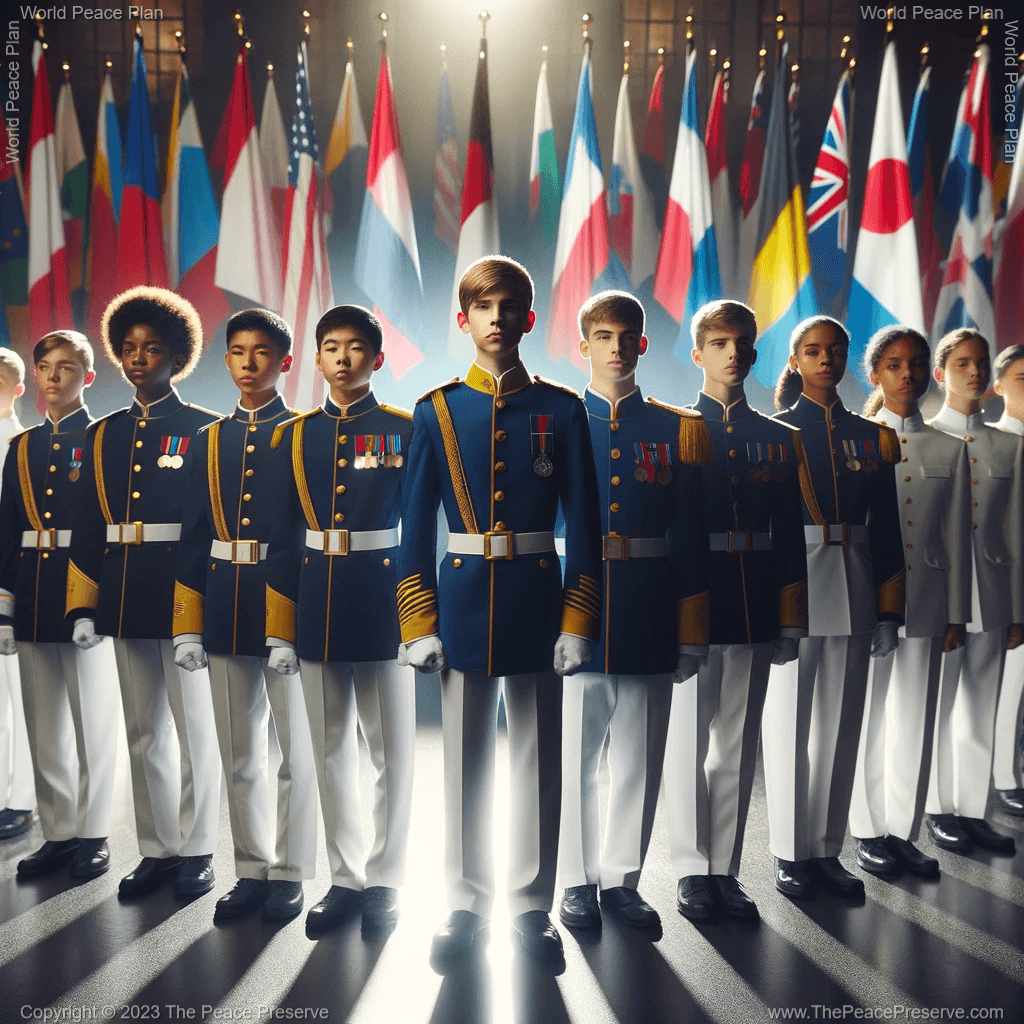Revised: Nov 23, 2023
Some of the protesters lost family members in the war. Thinking about the military families, especially the children who lost a parent was especially emotional. It seemed about as unfair as life could be. The military families, particularly the children who lost a parent, were enduring an unimaginable level of unfairness and hardship.
Joining the protesters was a way for the relatives of the fallen soldiers to take a stand against war. It made the adults feel better, if only briefly. The children were there with the protesters and they were now experiencing what it’s like to stand against something. Being with such angry people could not have felt good. These thoughts and observations fueled my determination to continue following my passion.
As the Commander of an American Legion Post, I had the privilege of leading various projects. My favorite among these projects was the Jr. Honor Guard initiative. Before establishing the Jr. Honor Guard, I had witnessed the American Legion Color Guard lead parades with the American flag. The audience’s reaction was heartwarming – they stood, cheered, applauded, and expressed their gratitude with shouts of “thank you.” It was evident that people wanted to show their appreciation for the soldiers and veterans.
Yet, I couldn’t arrange for currently deployed soldiers to march in the parades so the crowd could directly express their gratitude. Getting deployed soldiers home or into parades was beyond my control. However, a thought crossed my mind – what about the children of these soldiers? That’s when the concept of the Jr. Honor Guard was born. This group consisted of the children of deployed parents marching in the parades. It offered the community an opportunity to demonstrate their appreciation for the sacrifices these families were making and their genuine care for them.
In the inaugural year, we had sixty-eight children of deployed parents marching right behind the American Legion Color Guard. Each child received a U.S. flag, dog tags with their names, a T-shirt honoring their deployed parent, and a certificate of appreciation. After the parade, each child was given a CD with footage from the parade to send to their deployed parent. They were also treated to a buffet meal, their favorite ice cream, and a free pizza certificate to share with their parent upon their return.
I had the honor of marching alongside the children during the parade, and it was one of the most emotionally charged events I had ever experienced. As the crowd cheered loudly, passionately, and emotionally, it was an overwhelming moment. People stood, waved, cheered, applauded, yelled thank you, and even shed tears. Watching individuals in wheelchairs make the effort to stand up to honor these kids was beyond my greatest expectations. It brings tears to my eyes even now as I write about it.
I also had the pleasure of watching little babies in strollers, pushed by parents or guardians, their small flags proudly displayed. Young children held and waved their tiny flags with pride, knowing they now treasured them. Middle-aged children, particularly the boys, waved their flags and proudly displayed the dog tags we had gifted each of them.
The teenagers were profoundly moved by the experience. They didn’t realize the extent of community support until that moment. Witnessing tears stream down their faces as they saw the audience’s emotional response was incredibly healing for everyone involved. I, too, felt my eyes well up with tears while witnessing this powerful exchange between the children and the crowd. It was a healing experience for all of us.
Three local TV stations filmed the Jr. Honor Guard in the parade for their evening news. I recorded all three broadcasts and would tear up each time I watched them.
The emotions I felt during that parade were the most intense I had ever experienced. Each time I watched the recordings, I reconnected with those powerful feelings almost as strongly as when they first occurred. It was during these moments that I became even more curious about the nature of feelings. Where were these emotions coming from, and how did they originate?
Each time I rewatched those recordings, I could nearly relive those emotions at the same intensity. It further convinced me that I was on the right path and had done the right thing.
With such strong feelings, how could one not wonder about feelings ingeneral?
The parade and my ongoing reflections on emotions raised questions about their origin. I wondered: What is the source of these powerful feelings, and where do they come from? These feelings, the tears of joy, the cheers, and the immense gratitude, were undeniably profound, but they were arriving from somewhere. But where exactly?
With these strong emotions in mind, I began to contemplate feelings more generally. I had plenty of opportunities to revisit those powerful emotions whenever I watched those recordings. Where did these feelings come from, and what exactly were they? These questions intrigued me, and soon enough, the answers started to arrive.
What and where is that thing that sends the feelings? This question came to me and before long the answer came too. Those feelings were coming from that place where my life plan is stored.
Soon thereafter I read that feelings are the language of the soul. I asked and received my answer, and this time it was through a book. I learned that I could ask by simply saying the question. I also was learning that I could ask by simply thinking the question. Either way God was listening.
Soon, another answer came to me. It was a revelation. Feelings weren’t random; they were a language, a form of communication from the deepest part of me. The concept of feelings are the language of the soul resonated with me and further deepened my understanding. I had learned that I could ask questions and receive answers, not only through books but also in different ways. Whether by speaking the question or simply thinking it God was listening and responding.
I came to understand that these feelings came from the place where my life plan is stored, although the specific origin remained somewhat elusive. What and where is this place that sends these emotions? I continued to ponder this question, and eventually, the answer became clear. These feelings were coming from the realm of the soul, as the language of the soul.
This raised a new question: Was I actively listening when God answered? Was I fully aware of the various ways in which God was responding to my inquiries? With practice, it became evident that answers arrived in a multitude of forms. Sometimes they came directly into my mind, seemingly out of the blue. Other times, they appeared in song lyrics, books, newspapers, or even on billboards. Occasionally, I would hear someone speak or sing the answer I sought.
In these instances, I could always tell when it was a response meant for me. True answers were always accompanied by a distinct, positive feeling. Learning to trust my feelings became increasingly important. Now, I was not only receiving answers to my questions but also feeling these answers as messages to confirm their truth.

